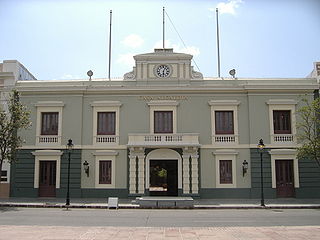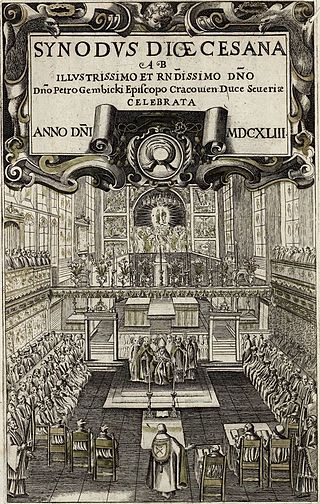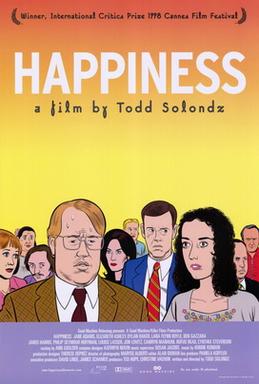The terms foobar, foo, bar, baz, and others are used as metasyntactic variables and placeholder names in computer programming or computer-related documentation. They have been used to name entities such as variables, functions, and commands whose exact identity is unimportant and serve only to demonstrate a concept. The style guide for Google developer documentation recommends against using them as example project names.

German, or more precisely High German, is a West Germanic language mainly spoken in Western Europe and Central Europe. It is the most widely spoken and official or co-official language in Germany, Austria, Switzerland, Liechtenstein, and the Italian province of South Tyrol. It is also an official language of Luxembourg and Belgium, as well as a recognized national language in Namibia. Outside Germany, it is also spoken by German communities in France (Alsace), Czech Republic, Poland, Slovakia, and Hungary (Sopron).
In linguistics, grammatical gender system is a specific form of noun class system, where nouns are assigned with gender categories that are often not related to their real-world qualities. In languages with grammatical gender, most or all nouns inherently carry one value of the grammatical category called gender; the values present in a given language are called the genders of that language.

A municipality is usually a single administrative division having corporate status and powers of self-government or jurisdiction as granted by national and regional laws to which it is subordinate.

A senate is a deliberative assembly, often the upper house or chamber of a bicameral legislature. The name comes from the ancient Roman Senate, so-called as an assembly of the senior and therefore considered wiser and more experienced members of the society or ruling class. However the Roman Senate was not the ancestor or predecessor of modern parliamentarism in any sense, because the Roman senate was not a de jure legislative body.

A town is a human settlement which is a place where people live. It refers to the totality of human community with all the social, material, organizational, spiritual, and cultural elements that sustain it. Towns are generally larger than villages and smaller than cities, though the criteria to distinguish between them vary considerably in different parts of the world.

A synod is a council of a Christian denomination, usually convened to decide an issue of doctrine, administration or application. The word synod comes from the Greek: σύνοδος [ˈsinoðos], meaning "assembly" or "meeting"; the term is analogous with the Latin word concilium meaning "council". Originally, synods were meetings of bishops, and the word is still used in that sense in Catholicism, Oriental Orthodoxy and Eastern Orthodoxy. In modern usage, the word often refers to the governing body of a particular church, whether its members are meeting or not. It is also sometimes used to refer to a church that is governed by a synod.
In linguistics, a calque or loan translation is a word or phrase borrowed from another language by literal word-for-word or root-for-root translation. When used as a verb, "to calque" means to borrow a word or phrase from another language while translating its components, to create a new lexeme in the target language. For instance, the English word "skyscraper" was calqued in dozens of other languages. Another notable example is the Latin weekday names, which came to be associated by ancient Germanic speakers with their own gods following a practice known as interpretatio germanica: the Latin "Day of Mercury", Mercurii dies, was borrowed into Late Proto-Germanic as the "Day of Wōđanaz" (*Wodanesdag), which became Wōdnesdæg in Old English, then "Wednesday" in Modern English.
Capitalization or capitalisation is writing a word with its first letter as a capital letter and the remaining letters in lower case, in writing systems with a case distinction. The term also may refer to the choice of the casing applied to text.
The grammar of the German language is quite similar to that of the other Germanic languages. Although some features of German grammar, such as the formation of some of the verb forms, resemble those of English, German grammar differs from that of English in that it has, among other things, cases and gender in nouns and a strict verb-second word order in main clauses.

Happiness is a 1998 American black comedy film written and directed by Todd Solondz, that portrays the lives of three sisters, their families, and those around them. The film was awarded the FIPRESCI Prize at the 1998 Cannes Film Festival for "its bold tracking of controversial contemporary themes, richly-layered subtext, and remarkable fluidity of visual style," and the cast received the National Board of Review award for best ensemble performance.
Onondaga language is the language of the Onondaga First Nation, one of the original five constituent tribes of the League of the Iroquois (Haudenosaunee).
Máku, also spelled Mako, and in the language itself Jukude, is an unclassified language and likely language isolate once spoken on the Brazil–Venezuela border in Roraima along the upper Uraricoera and lower Auari rivers, west of Boa Vista, by the Jukudeitse. 300 years ago, the Jukude territory was between the Padamo and Cunucunuma rivers to the southwest.
The nouns of the German language have several properties, some unique. As in many related Indo-European languages, German nouns possess a grammatical gender; the three genders are masculine, feminine, and neuter. Words for objects without obvious masculine or feminine characteristics like 'bridge' or 'rock' can be masculine or feminine. German nouns are declined depending on their grammatical case and whether they are singular or plural. German has four cases: nominative, accusative, dative and genitive.
Yiddishkeit literally means "Jewishness". It can refer broadly to Judaism or specifically to forms of Orthodox Judaism when used by religious and Orthodox Jews, specifically. In a more general sense, it has come to mean the "Jewishness" or "Jewish essence" of Ashkenazi Jews in general and the traditional Yiddish-speaking Jews of Eastern and Central Europe in particular.

Icelandic is a North Germanic language spoken by about 314,000 people, the vast majority of whom live in Iceland, where it is the national language. Due to being a West Scandinavian language, it is most closely related to Faroese, western Norwegian dialects, and the extinct language Norn.

In linguistic morphology, inflection is a process of word formation in which a word is modified to express different grammatical categories such as tense, case, voice, aspect, person, number, gender, mood, animacy, and definiteness. The inflection of verbs is called conjugation, and one can refer to the inflection of nouns, adjectives, adverbs, pronouns, determiners, participles, prepositions and postpositions, numerals, articles, etc., as declension.
In George Orwell's dystopian novel Nineteen Eighty-Four (1949), Newspeak is the fictional language of Oceania, a totalitarian superstate. To meet the ideological requirements of Ingsoc in Oceania, the Party created Newspeak, which is a controlled language of simplified grammar and restricted vocabulary designed to limit the individual person's ability to think critically or to articulate subversive concepts, such as personal identity, self-expression, and free will. In Oceania, such thoughts are thoughtcrimes that contradict Ingsoc orthodoxy.

Keit Pentus-Rosimannus is an Estonian politician who served as Minister of Finance in the government of Prime Minister Kaja Kallas between 26 January 2021 and 19 October 2022. She is also the vice-chairwoman of the biggest parliament party Reform Party and former chairwoman of its parliamentary faction.
Jingulu, also spelt Djingili, is an Australian language spoken by the Jingili people in the Northern Territory of Australia, historically around the township of Elliot. The language is one of several languages of the West Barkly family.